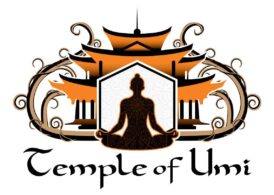Discover effective stress reduction strategies with our comprehensive guide. Learn how to manage daily pressures through exercise, diet, and mindfulness for a balanced lifestyle.
Introduction
Stress is inevitable in daily life, influencing our physical health, emotional well-being, and cognitive function. Understanding how stress impacts us can help develop effective strategies for managing it. Stress reduction is not just about feeling better in the moment; it’s about enhancing overall quality of life and preventing long-term health issues.
- Understanding stress and its impact on daily life: Stress arises when we perceive a disconnect between the demands placed on us and the resources we have available to cope. This perception can affect every aspect of our daily life, from our focus and productivity at work to our interactions with family and friends.
- Importance of managing stress for overall well-being: Effective stress management leads to improved mental health, better physical health, and enhanced emotional resilience. Incorporating stress reduction techniques into our routines can significantly improve life satisfaction and overall happiness.
Recognizing the Signs of Stress
Identifying the early signs of stress is crucial for timely intervention. Recognizing these signs can prevent the escalation of tension, making it easier to manage through various techniques.
- Physical symptoms of stress: Common physical indicators include headaches, muscle tension, fatigue, and changes in sleep patterns. These symptoms often serve as the first warning signs that your body is stressed.
- Emotional and psychological indicators: Feelings of overwhelm, irritability, or decreased enjoyment in previously enjoyable activities are significant markers. Anxiety and depression can also be exacerbated by unchecked stress.
- How stress affects behavior and decision-making: Stress can lead to poor decision-making, procrastination, and decreased performance at work or school. Recognizing how stress compromises our ability to make thoughtful decisions is critical to taking proactive steps toward stress reduction. Learn more.
Daily Habits for Stress Reduction
Importance of Regular Exercise
- Boosts Endorphins: Regular exercise helps release endorphins, natural mood lifters that play a crucial role in stress reduction.
- Improves Resilience: Regular physical activity can increase your overall health, making you more resilient against stressors.
- Enhances Focus: Exercise can also help maintain mental focus, which stress can adversely affect.
The Role of a Balanced Diet in Managing Stress
- Nutrient-Rich Foods: A diet rich in essential vitamins and minerals supports brain function and reduces stress symptoms.
- Blood Sugar Control: A balanced diet helps stabilize blood sugar levels, reduce mood swings, and improve energy.
- Hydration: Adequate hydration is vital for maintaining energy levels and cognitive function, helping to manage stress more effectively.
Benefits of Consistent Sleep Patterns
- Reduces Cortisol Levels: A regular sleep schedule helps to regulate cortisol levels, the stress hormone, enhancing your stress-meaning capabilities.
- Improves Brain Function: Consistent quality sleep is crucial for the brain’s recovery from daily stressors, enhancing problem-solving skills and creativity.
- Boosts Mood: Good sleep patterns can significantly improve your mood, reducing feelings of irritability and frustration associated with stress. Learn more.

Mindfulness and Relaxation Techniques
Introduction to Mindfulness Meditation
- Focus on the Present: Mindfulness meditation teaches you to focus on the present moment, which can significantly reduce the engagement in stress-provoking thoughts.
- Reduces Anxiety: Regular practice of mindfulness meditation has been shown to lower levels of anxiety and stress.
- Improves Emotional Response: This technique can enhance your ability to manage emotions, contributing to better stress management.
Deep Breathing Exercises and Their Benefits
- Immediate Stress Relief: Deep breathing exercises can relieve stress symptoms by slowing the heart rate and lowering blood pressure.
- Easy to Practice: These exercises can be done anywhere and anytime, making them a highly accessible tool for stress reduction.
- Enhances Oxygen Exchange: Effective deep breathing increases oxygen exchange, stimulating the parasympathetic nervous system and promoting calmness.
Progressive Muscle Relaxation Techniques
- Tension Release: Progressive muscle relaxation involves tensing and then relaxing different muscle groups, which can help alleviate the physical symptoms of stress.
- Improves Body Awareness: Regular practice increases body awareness, which can help you recognize the early signs of stress.
- Encourages Relaxation: This technique helps reduce stress and promotes an overall sense of physical relaxation and well-being. Learn more.
Cognitive Behavioral Strategies for Stress Reduction
Identifying and Challenging Stress-Inducing Thoughts
- Begin by recognizing the specific thoughts that contribute to stress.
- Use journaling to track thoughts during stressful times and find patterns.
- Challenge these thoughts by asking how true they are and considering more positive perspectives.
Developing Positive Thinking Patterns
- Shift focus to what you can control, moving away from adverse outcomes.
- Practice gratitude daily by noting things you are thankful for, which can transform your mental approach to everyday situations.
- Replace negative thoughts with constructive or optimistic alternatives to gradually reshape your mindset.
Techniques for Problem-Solving and Decision-Making
- Apply a systematic approach to problem-solving by breaking down problems into manageable parts.
- Consider multiple solutions, weigh their pros and cons, and decide on the action that minimizes stress.
- Set clear, achievable goals for each solution to guide your decision-making process and reduce the anxiety associated with large tasks.

The Role of Social Support in Stress Reduction
How Relationships Can Help Manage Stress
- Emotional support from friends and family can offer comfort and reduce feelings of isolation.
- Engaging in social activities can provide distractions from stressors, offering mental relief.
- Relationships offer a sounding board for expressing worries and stress, making burdens feel lighter through shared understanding.
Finding and Participating in Supportive Communities
- Look for groups with similar interests or experiences that can provide empathy and understanding.
- Participate in community activities or online forums to connect with others seeking stress reduction.
- Volunteering can be a fulfilling way to meet supportive individuals, give back, and reduce stress through positive actions.
Tips for Effective Communication to Reduce Misunderstandings and Conflicts
- Practice active listening to understand others’ perspectives, which can prevent conflicts entirely.
- To avoid misunderstandings, express your thoughts and feelings clearly and calmly, especially when discussing stressors.
- Set boundaries in relationships to manage expectations and reduce relationship-induced stress.
Professional Help and Therapies
When to Seek Professional Help
- Recognizing the need for professional help is crucial in stress reduction when self-management methods are insufficient.
- Signs that it might be time to seek professional help include prolonged stress symptoms, overwhelming feelings that impair daily activities, and stress leading to depression or anxiety.
- Consulting with a healthcare provider can provide a referral to the appropriate mental health professional.
Overview of Counseling and Therapy Options
- Various therapy options are available that can significantly aid in stress reduction. These include cognitive-behavioral therapy (CBT), which helps modify negative thoughts and behaviors, and psychodynamic therapy, which focuses on understanding emotional responses.
- Group therapy and workshops can also be effective. They provide tools for stress management and the opportunity to share experiences with others facing similar challenges.
The Effectiveness of Stress Management Programs
- Structured stress management programs, often available through workplaces or community centers, provide comprehensive support in managing stress.
- These programs typically include workshops on time management, relaxation techniques, and resilience training.
- Research shows that participants in these programs often experience lower levels of stress, improved mental health, and increased productivity.
Creating a Personal Stress Management Plan
Assessing Personal Stress Triggers and Responses
- Identifying what triggers stress and understanding how you respond to it is the first step in effective stress management.
- Keeping a stress journal can help pinpoint specific stressors and the circumstances that increase stress levels.
- This assessment will guide the customization of a more effective stress reduction plan.
Setting Realistic Goals for Stress Reduction
- Setting achievable goals is essential for effective stress management. These include dedicating time for relaxation, learning new coping skills, or changing the environment that contributes to stress.
- To enhance the success rate of the stress reduction plan, goals should be specific, measurable, attainable, relevant, and time-bound (SMART).
Monitoring Progress and Making Adjustments
- Regularly reviewing the progress of your stress reduction plan is crucial to ensure it meets your needs.
- Adjustments may be needed if specific strategies are not reducing stress as expected. Flexibility in approach can help you discover what best helps you manage your stress.
- Celebrating small victories can motivate continued effort and commitment to stress reduction.

Final words
In our comprehensive exploration of stress reduction, we’ve delved into various effective strategies tailored to help manage and mitigate stress. By understanding and applying these techniques, individuals can significantly enhance their ability to cope with daily pressures and challenges. Below is a recap of critical strategies and further encouragement to integrate these practices into your daily life:
- Regular Physical Activity: Regular exercise is one of the most effective ways to combat stress. Whether it’s yoga, jogging, or simple stretching exercises, physical activity triggers the release of endorphins, which are natural mood lifters.
- Mindfulness and Meditation: Mindfulness and meditation can significantly lower stress levels by enhancing your present-moment awareness. Techniques such as deep breathing exercises and guided meditation can help calm the mind and reduce anxiety.
- Balanced Diet: Consuming a healthy and balanced diet is crucial in stress management. Foods rich in vitamins and minerals can boost brain health and improve mood, while reducing caffeine and sugar intake can help stabilize energy levels and relieve tension.
- Adequate Sleep: Ensuring you get enough rest each night is vital for reducing stress. Sleep helps to repair and restore your brain and body, improving concentration, regulating mood, and sharpening decision-making skills.
- Positive Social Interactions: Maintaining a supportive network of friends and family can provide emotional support and decrease feelings of isolation and anxiety. Social activities can also distract from stressful thoughts and boost your mood.
- Professional Guidance: For chronic stress, seeking help from professionals through counseling or stress management programs can provide tailored strategies to cope with stress effectively.
As we conclude, it’s important to remember that integrating stress management practices into your daily routine is not just about reducing stress at the moment. It’s about creating a sustainable lifestyle that supports ongoing mental and physical health. Embrace these practices not only as temporary solutions but as part of a continual commitment to a balanced and healthy lifestyle. With dedication and consistency, you can significantly improve your overall well-being, leading to a happier, more fulfilling life.
- What is Sacred Plant Medicine?
- Embark on a Journey of Transformation with Spiritual Healing
- Unveiling Healing Energy at the Temple of Umi
- 10 Energy Healing Techniques to Transform Your Life
- Where to get Sacred Plant Medicine Retreat in the USA
- Top Plant medicine retreats in the USA. Learn more.
- Cost of Plant Medicine Retreat: Balancing Cost and Experience. Learn more.
- What is trauma bonding?
- A Journey into the Healing Properties of Psychedelic Mushrooms. Learn more.
- Plant Medicine Retreat Georgia – Experience Spiritual Awakening










